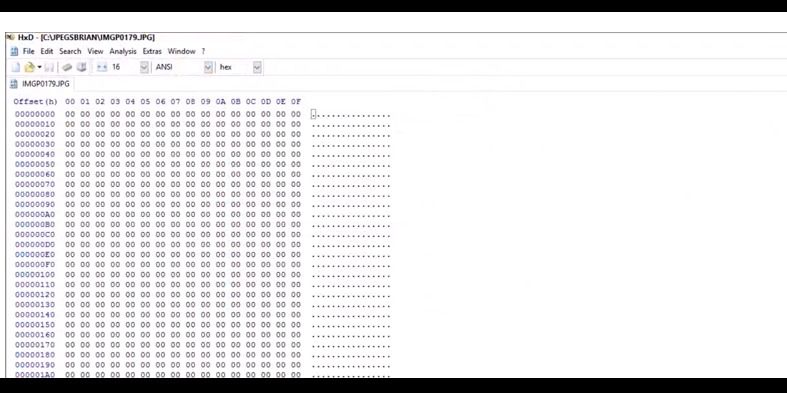

For people who haven’t optimized on business calls yet - 3 Myths debunked
A lot of technological advancements have come up in the recent past. In similar lines, call tracking has also created a lot of boom in the market but I doubt if businesses have implemented the same. This article talks about the various myths of call tracking which might have been stopping businesses to use it. Therefore, I've tried to unveil these myths and shared an insight on how call tacking can be useful for any business.
Wednesday January 04, 2017,
5 min Read
Let’s start with this first. What is call tracking? (We’ll talk about the myths later)
Well for those of you who believe in numbers and have analysed metrics related to search queries, must have definitely explored Google Analytics for the digital traffic you get. Right? It’s the same concept with phone calls.
The idea is straight (and enticing at the same time). Just track your call metrics for the right attribution, figure out which marketing channel is driving the most number of calls and optimize on the same. Get it?
But wait, that’s not all. To start with an effective call tracking, you need to have unique phone numbers (in fact virtual numbers) which you assign to all your marketing channels. Ummm...must be sounding like a lot of work. Trust me, it’s not!
A call tracking system automates itself as soon as you receive a phone call on your assigned phone number. All you’re left with is publishing this number to increase your call leads.
Call tracking is an essential part for any organization. In one of the recent surveys, Google reported that more searches occur on mobile devices than desktop. This has led to an increase in the number of business enquiry calls. But unfortunately, most Indian businesses have been quite slow in implementing a call tracking system into their processes due to some technological misunderstandings.
Are you also in this league? If you’re, then I’m here to eradicate this misunderstanding.
Let’s go ahead with busting “Myths” (and I like doing this!)
Myth 1: With call tracking, you cannot know what’s happening ON a phone call
No! That’s not true. How can you even...Ok. Let me stop you for a moment and give you a reality check.
You can know what exactly is happening ON a call with a call tracking system. As per researchers, it has been found that there are 420 billion words spoken over a phone call with businesses. But am I saying it’s a lot of data to be mined on? Yes, of course. Think how valuable insights could be extracted from those 420 billion words! This may include the sales readiness, customer preferences and to an extent lead quality. And yes! What about the data points from the employee side of the phone call? Did they mention about the appropriate offers and deals? Was the caller satisfied with the sales representative who attended the call?
A lot of DATA right? Should I consider that the Myth’s busted? I think I should.
Call tracking not only offers you an access to what is happening ON a call but provides you with some really powerful data which can be of a real good help. You can optimize on your marketing efforts by knowing the customer likes and dislikes and at the same time improve your sales communication (if required) to close deals faster.
Myth 2: Implementing a call tracking system isn’t worth an investment
Like seriously? After what all I’ve shared earlier, is this still what you think? Let’s get down to calculations. How much money do you spend on an average for your sales call? Assume that you spend at least $30,000 dollars on your sales agents per for the calls they make, including follow ups. Also, Hubspot cites, that 80% of the sales require 5 follow ups. Ahan...this a lot of expense! Now assume, when every time you make a call and they share a valuable insight and you aren’t able to track it. Or, you have been missing out on calls leading to missed opportunities. But, am I asking you track these opportunities? Definitely!
With a call tracking system, you can not only track the phone calls those are missed but listen to the recordings and understand the insights shared by the callers and follow up with the same in future conversations.
I hope that this also busted. Oh yes, it has.
Myth 3: All the call tracking software are the same.
If this is what you think, then it’s absolutely wrong.
There are a lot of call tracking system in the market with different attributes. For example, there are software that gives you data about which all keywords on your website or landing pages have generated a call. This helps you in optimizing keywords for all your digital marketing campaigns. Alternatively, you may find software which can help you by sharing speech analytics of the callers and tell you that the call could have converted into a successful deal.
Indian businesses, such as Lenskart has been using call tracking software to manage all its calls, specifically its operations. Lenskart took up virtual numbers to track the calls coming through their website. So, it’s smart you see.
Call analytics are the best way to focus and optimize on your prospects, because for every business call you attend, there’s an opportunity to up sell and cross-sell your product. Be very wise while choosing your call tracking system, because not all systems will provide you with metrics that you want.
Calls can be one of the strongest section where businesses can optimize on. Although, due to the myths that Indian businesses have imbibed with call tracking so far, have not let them implement the same. I think we need to work on this channel too! What do you think?
These were just 3 Myths that I busted and of course there are more to be addressed. But I would like to know more. Please share your thoughts in the comment section below.



